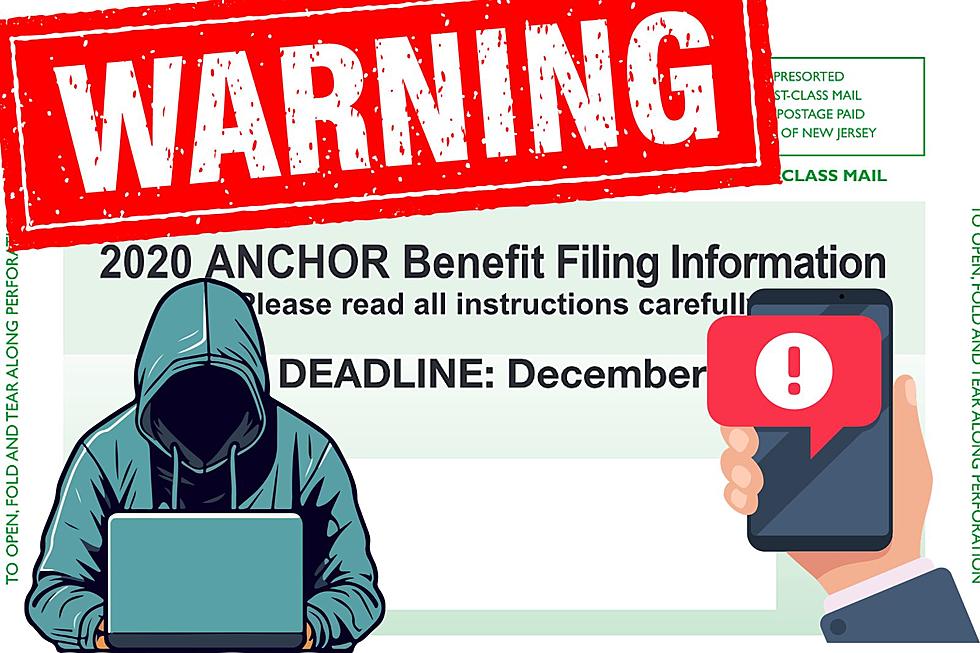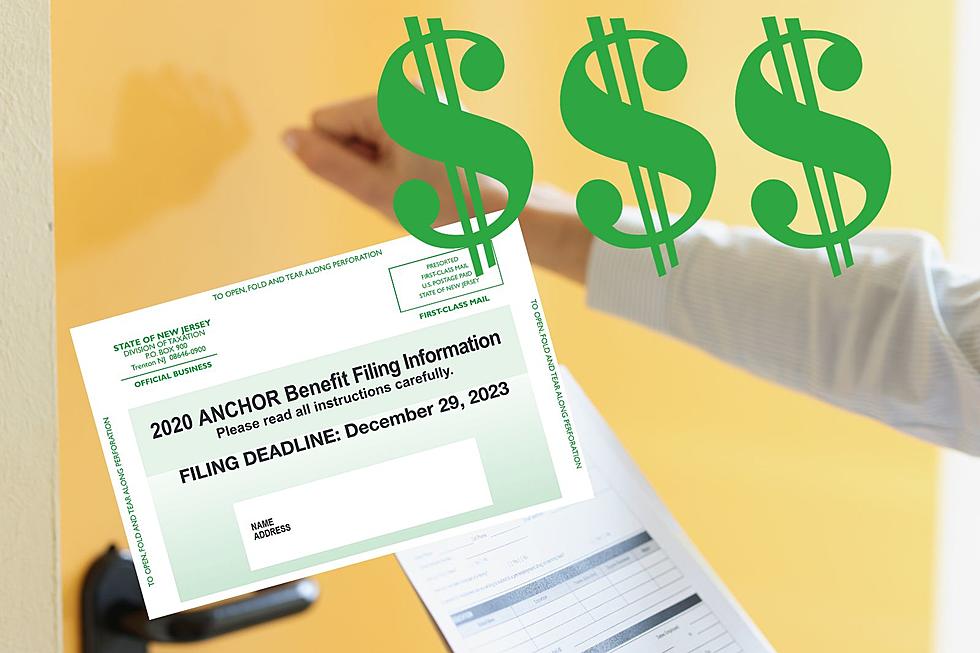
Beware — Scams target ANCHOR rebates — How to stay safe
❗ NJ officials alert about scams targeting ANCHOR property tax rebates
❗ Some scammers have redirected benefit payments
❗ What are the most common scams and how do you keep your money safe?
ANCHOR property tax rebates are now going out to nearly two-million New Jersey homeowners.
Scam artists are stepping up efforts to separate you from your rebate money.
The New Jersey Cybersecurity & Communications Integration Cell (NJCCIC) and New Jersey Treasury office are reporting an uptick in several types of scams targeting the ANCHOR rebate money.
The scams are coming in the form of email, text messages and phone calls.
Consumers reported more than 498,000 imposter scams to the Federal Trade Commission in 2020.
“The NJCCIC detected a series of phishing emails attempting to steal New Jersey residents’ ANCHOR program ID and PIN,” the NJCCIC said on its website.
Most rebates delivered electronically have already been deposited into bank accounts.
Paper checks began mailing this week.
If you were expecting to receive your rebate, but did not, you can check the status of your rebate by following this LINK.
There are also a number of reasons the state may have seized your rebate money. For a list of reasons why, and how you might still be able to get your money, follow this LINK.
Here is a look at the most common types of scams, and how to protect yourself.
TOAD scam
TOAD, or Telephone-oriented Attack Delivery, scams are essentially phishing attempts by phone.
You may get a call from someone pretending to be a representative of the New Jersey Division of the Treasury. They will ask for personal information as well as your ID number and PIN number connected to your ANCHOR account.
Once they have this information, they can either file a fraudulent claim, or redirect your rebate into a bank account they control.
These calls can seem legitimate as scammers have even learned how to deliver a fake caller-ID that may say the call is from a government agency.
How to protect yourself from phone scams
Do not provide any personal information to the caller. Ever.
The NJCCIC further advises ANCHOR applicants to contact the NJ Treasury Division of Taxation directly before providing any sensitive personal information in response to received communications claiming to be related to the ANCHOR program.
If you have already provided this information to a caller, contact the NJ Treasury Division of Taxation identity theft reporting portal, and the NJCCIC via the Cyber Incident Reporting Form.
Text scam
The New Jersey Department of the Treasury is also warning of text messages being sent claiming to be from the Treasury regarding ANCHOR benefits.
The scammer will try to get personal information including bank account numbers in order to either redirect a payment or access other funds in your account.
How to protect yourself from text scams
Do not provide personal information
A notice on the ANCHOR benefits website reads:
The New Jersey Division of Taxation will not initiate a text exchange to request personally identifiable information regarding your ANCHOR benefit, or your income tax filing.
We urge you to contact us directly before providing any sensitive personal information in response to received communications claiming to be related to the ANCHOR program.
Phishing scam
Email, or phishing, scams can look legitimate.
They can include official looking state logos and even return email addresses that seem like they are from a state agency.
They will often purport to need verification of personal data in order for you to receive your benefits.
You may be asked to click a link that will take you to an official looking website.
The ultimate goal is to get access to personal information that can be used to steal your identity or access your bank account.
How to protect yourself from Phishing scams
Do not click on the links. Do not give personal information
While it is possible to get an email from a New Jersey government agency, they will never ask you to reveal your personal information.
If you receive one of these ANCHOR emails, contact the ANCHOR rebate hotline (877) 658-2972.
Government imposter scams are on the rise
The Federal Trade Commission reports varying government imposter scams are on the rise.
Consumers reported more than 498,000 imposter scams to the FTC in 2020.
The FTC maintains a list of scams consumers need to be aware of.
This list includes information about government imposter, demands for money, student loans, investment, lottery and telephone scams.
If you believe you have been the victim of a scam, you are urged to file a report with the FTC.
Don't get fooled: Here's 24 scam texts I received in just one month
Gallery Credit: Mike Brant
8 Things To Do If You Paid A Phone Scammer
Gallery Credit: Brad Carpenter/Federal Trade Commission/Canva
Better Business Bureau Tips on How to Avoid a Social Media Scam
Gallery Credit: Mary K
The biggest private info breaches in NJ health care
Gallery Credit: New Jersey 101.5
Report a correction 👈 | 👉 Contact our newsroom
More From New Jersey 101.5 FM









